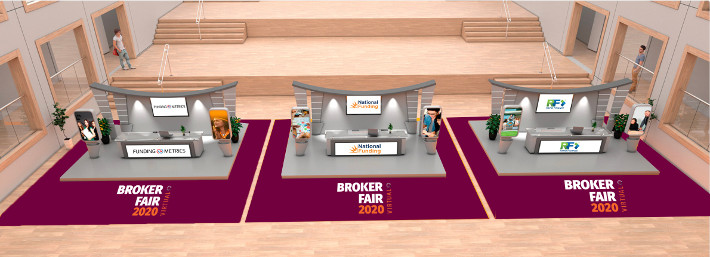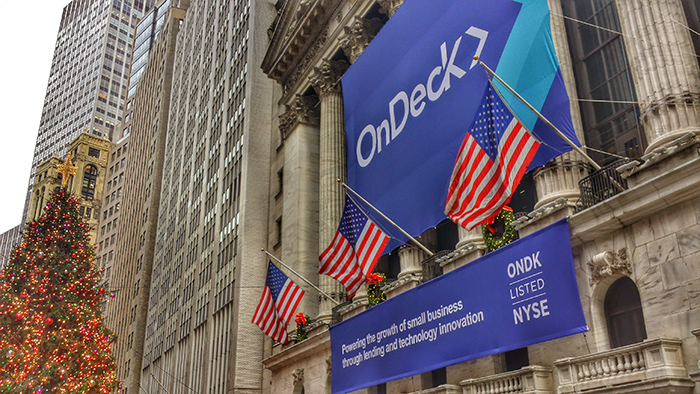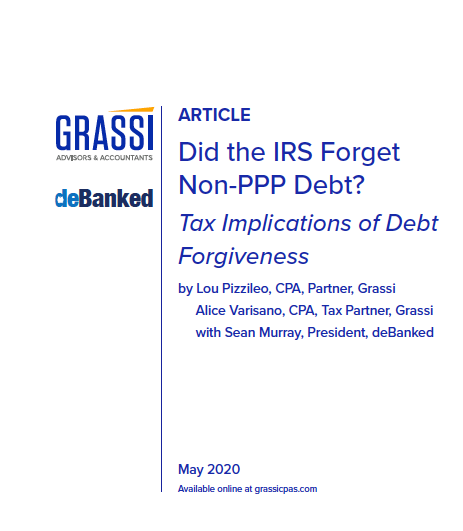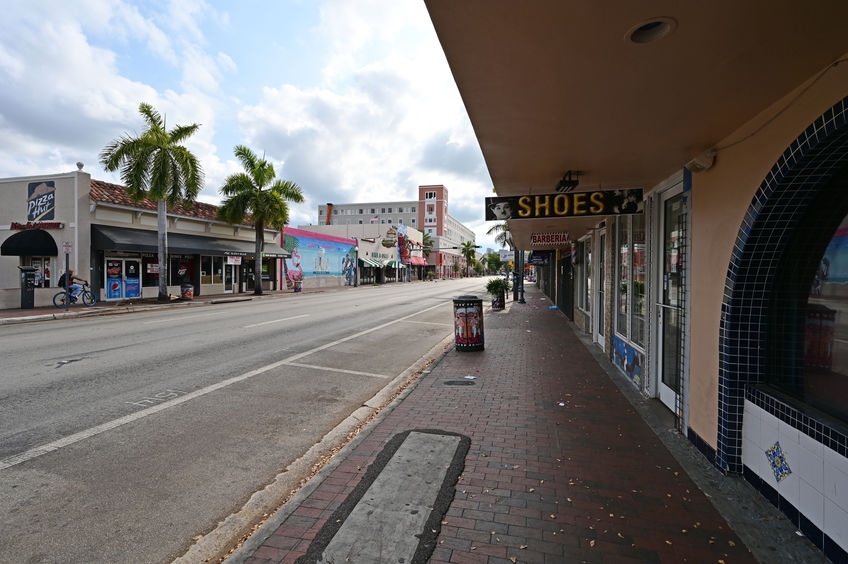Archive for 2020
Broker Fair, Not a Webinar… A Virtual Reality Conference
May 21, 2020 Coming June 11th, Broker Fair in Virtual Reality. Much different from a webinar, Broker Fair Virtual will actually be a virtual world with a lobby, exhibit hall, networking lounge, and auditorium. Attendees will be able to interact with each other as well as visit and interact with sponsors at their virtual booths.
Coming June 11th, Broker Fair in Virtual Reality. Much different from a webinar, Broker Fair Virtual will actually be a virtual world with a lobby, exhibit hall, networking lounge, and auditorium. Attendees will be able to interact with each other as well as visit and interact with sponsors at their virtual booths.

There will be live video sessions too of course (see the agenda here), but if you’re there for the networking, get ready for a totally unique experience!
Broker Fair 2020 Virtual isn’t replacing the In-person event. That’s been rescheduled to 3/22/21 at the same location, Convene at Brookfield Place in New York City. All attendees registered for the in-person event are able to attend this virtual event on June 11th for free. If you never registered for that, you can still buy tickets that grant access to both at: https://brokerfair.org/register/


See you at Broker Fair!
Hidden Tax Liabilities: Assessing Small Business Borrower Risk Before, During, and After The Pandemic
May 19, 2020How lenders assess the risk of small business borrowers is changing and one important factor that no one will be able to ignore is tax liabilities. Hansen Rada, CEO of Tax Guard, told deBanked that outstanding tax liabilities are not always readily apparent in the form of a lien. Tax Guard can fill in the blanks on what lenders normally wouldn’t be able to see.
I asked Rada what tax liabilities even meant for a small business, especially in today’s environment.
“Tax liability is not the disease,” Rada said. “It’s a symptom of the disease. The disease is cash flow.”
In this 17 minute Q&A, I asked Rada many questions that underwriters all over the country are probably thinking about right now. Watch it below:
The Latest With OnDeck
May 18, 2020A Week after OnDeck reported Q1 earnings, the company experienced its first early amortization event brought on by the COVID-19 crisis.
The news was publicized in a May 11th filing with the SEC:
On May 7th, an early amortization event occurred with respect to the Series 2019-1 notes issued by OnDeck Asset Securitization Trust II LLC, or ODAST II as a result of an asset amount deficiency in that Series. Beginning on the next payment date under the ODAST II Agreement, all remaining collections held by ODAST II, after payment of accrued interest and certain expenses, will be applied to repay the principal balance of the Series 2018-1 notes and the Series 2019-1 notes on a pro rata basis.
 The company also revealed that it had amended a debt facility “so that no borrowing base deficiency shall occur during the period from April 27, 2020 to July 16,2020.”
The company also revealed that it had amended a debt facility “so that no borrowing base deficiency shall occur during the period from April 27, 2020 to July 16,2020.”
On May 15th, OnDeck notified shareholders of additional events and maneuvers through a new filing published after the closing bell. The filing stated that:
On May 12th, a similar event happened with the 2018-1 notes as had happened with the 2019-1 notes.
On May 14th, OnDeck modified the terms of a debt facility so that “from March 11, 2020 to August 31, 2020, receivables granted temporary relief in response to the COVID-19 pandemic will generally not be considered delinquent […] so long as such receivable is paying in accordance with its modified terms.”
Also on May 14th, OnDeck obtained a temporary waiver on another debt facility. “Under the waiver, the lenders temporarily waived the occurrence and existence of reported borrowing base deficiencies and any failure to cure such deficiency amount, in each case, until the close of business on May 19, 2020.” OnDeck accepted the waiver with the understanding it would enter into a broader amendment to remain in compliance with performance and other criteria in light of increased delinquency and other portfolio dynamics that result from COVID-impacted loans. “If such an amendment is not entered into or if the borrowing base deficiency is not otherwise cured, the borrowing base deficiency would constitute an event of default under the ODAF II Facility at close of business on May 19, 2020.”
The 19th is tomorrow.
A similar waiver was obtained for another debt facility. The company has until May 20th to enter into a broader amendment to remain in compliance on that one.
The company is in a fight for its survival. In late April, OnDeck “suspended nearly all new term loan and line of credit originations and previously ceased all equipment finance lending.” The company reported that it is “focused on liquidity and capital preservation and expects there will be a significant portfolio contraction, reflecting an 80% or more reduction in the second quarter origination volume.”
The stock closed at 64 cents on Friday and a market cap of only $37.3M. Shares had traded over $4 earlier in the year.
On May 7th, shareholders voted overwhelmingly in favor of keeping CEO Noah Breslow on the company’s board of directors.
Ireland’s Alternative Finance Industry and the Coronavirus
May 18, 2020 As the effects of the coronavirus continue to slow down the American economy, around the world, many countries remain in lockdown, with their businesses having been halted. Be it to the north, south, east, or west, of the United States, the results are the same: money has stopped flowing. As such, we took the opportunity to follow up with some of the businesses that featured in our coverage of alternative finance in Ireland last Fall, hoping to see what differed and what was the same in their responses to the pandemic.
As the effects of the coronavirus continue to slow down the American economy, around the world, many countries remain in lockdown, with their businesses having been halted. Be it to the north, south, east, or west, of the United States, the results are the same: money has stopped flowing. As such, we took the opportunity to follow up with some of the businesses that featured in our coverage of alternative finance in Ireland last Fall, hoping to see what differed and what was the same in their responses to the pandemic.
Despite differing in size and range of variety when compared to their North American counterparts, the Irish alternative finance and fintech industries have largely felt the same impacts from covid-19. Certain funders have stopped operations, others have become very cautious, and just like here, some businesses have turned to the government for help.
LEO, or Local Enterprise Offices, is an advisory network for small and medium-sized businesses, which provide guidance as well as offer capital. The Irish government has pointed to these as the point of contact for small businesses owners, with LEO providing microfinance loans of up €50,000. This figure being upped from the pre-coronavirus maximum of €25,000.
Rupert Hogan, the Managing Director of brokering company BusinessLoans.ie, explained that some businesses would be better going with LEO over banks and even some non-banks. Noting that non-bank lenders can’t compete with the rates offered by LEO and, just like in the US, banks can’t act with the speed that these business owners need.
 Hogan, who describes the current situation as “The Great Lockdown,” said that banks “aren’t too helpful, even in the good times,” due to the high rejection rates that SMEs experience when looking for loans. In regards to merchant cash advances, he’s expecting, when the MCA companies reopen, that they’ll be funding at reduced rates, some doing as much as 50% less than their pre-coronavirus amounts.
Hogan, who describes the current situation as “The Great Lockdown,” said that banks “aren’t too helpful, even in the good times,” due to the high rejection rates that SMEs experience when looking for loans. In regards to merchant cash advances, he’s expecting, when the MCA companies reopen, that they’ll be funding at reduced rates, some doing as much as 50% less than their pre-coronavirus amounts.
Jaime Heaslip, Head of Brand Marketing at the MCA company Flender, explained that before the virus, the company was experiencing a period of productivity, with lending activity and amounts deposited being up from previous years. And despite the virus disrupting commerce, the former international rugby player noted that business owners are still coming to Flender for funds.
“We provide flexibility for people, there’s a lot of people coming to us to get contingency funds together,” he said over a phone call, commenting that as well as this, many businesses are looking for financing to move their operations online. “We’re trying to help SMEs get through this and provide as much help as possible.”
Beyond merchant cash advances, business continues to run, says Spark Crowdfunding’s Chris Burge. Being an investment platform, Spark is still active with businesses looking to get off the ground.
“We’ve actually found that we’ve still got a large amount of inquiries coming through,” the CEO and Co-Founder said. “Our pipeline of companies wanting to go onto the platform is very strong, and we’ve been engaging with them all and they’re very keen. They all need money, which, of course, hasn’t changed from before there was a crisis. And they still are needing money, they need that to expand as opposed to survive.”
When asked about changes made because of covid-19, Burge explained that their investor evenings have been disrupted. Previously an opportunity for the investors and investees on the digital platform to meet up personally and pitch each other, these 100-person gatherings are no longer an option. Instead, virtual webinars and assemblies are what Spark has started using to keep up communication between parties.
And on the subject of fundraising, Trezeo’s Garrett Cassidy said that it has become a nightmare under the pandemic. Disrupted communication channels and the inability to pitch to someone in the same room as you have been hurdles, but besides that, Cassidy assured me that Trezeo is still going strong.
 Offering payment structures and benefit bundles to freelancers and the self-employed, Trezeo has seen some of its customer base drop off as unemployment sky-rocketed in the UK, its prime market. Despite this, as more and more people are beginning to go back to work, Cassidy says numbers are rising.
Offering payment structures and benefit bundles to freelancers and the self-employed, Trezeo has seen some of its customer base drop off as unemployment sky-rocketed in the UK, its prime market. Despite this, as more and more people are beginning to go back to work, Cassidy says numbers are rising.
“Now we’re starting to see earnings pick back up again, some of them were the ones who were off work who are now coming back to work. So it’s been interesting watching that but the reality is that they’re also scared. They’re out working every day delivering parcels or food, depending on which, and just working really hard. It’s the most important ones who are paid the least and that have the least protection.”
Looking ahead, Trezeo has been working with the UK’s Labour Exchange to establish a new program that would see the creation of channels to help pre-qualify workers for certain positions. These workers would be pooled, and employers would be able to choose from them, streamlining the hiring process for both sides.
“They need money in their pockets, somehow, quickly,” Cassidy said of workers, whether that be by returning to work safely, or through some government assistance program, the CEO is adamant that people need to stay solvent.
Altogether, Ireland’s alternative finance industry, like others the world over, has been hit hard by the coronavirus’s economic effects. With the country’s phased lifting of the lockdown being plotted out over the course of the summer, the island nation may not see as quick a return to commerce as certain American states, but its fintechs and non-banks hope to stick around, by hook or by crook, as the Irish say, by any means possible.
Forgiven Debts: The Hidden Tax Time Bomb That Could Kick Small Businesses While They’re Down
May 12, 2020 Small businesses that stay out of bankruptcy but have some portion or all of their debts forgiven (excluding PPP debt) are in for a rude awakening come tax time next year. In a variety of circumstances, cancelled debt can be classified as taxable income for the debtor per the IRS. This, according to a new tax study titled Did The IRS Forget Non-PPP Debt? authored by Grassi & Co, a leading accounting and business firm based in New York, that was produced in collaboration with deBanked.
Small businesses that stay out of bankruptcy but have some portion or all of their debts forgiven (excluding PPP debt) are in for a rude awakening come tax time next year. In a variety of circumstances, cancelled debt can be classified as taxable income for the debtor per the IRS. This, according to a new tax study titled Did The IRS Forget Non-PPP Debt? authored by Grassi & Co, a leading accounting and business firm based in New York, that was produced in collaboration with deBanked.
At face value, it would appear that taxpayers who have non-PPP debt canceled, forgiven or discharged during the COVID-19 crisis and do not meet any of the specific exclusions mentioned in the report, would be subject to tax on the cancelled debt as income.
This tax treatment, which pre-existed COVID-19, could be devastating in this era where the prevalence of debt forgiveness is likely to reach unprecedented levels.
 In many cases this year, debt cancellation will be the direct result of government mandated shutdowns that were of no fault of the businesses themselves. Should they refrain from filing for bankruptcy and successfully negotiate a cancellation of some debt, it seems quite disastrous that the same government that shut them down might deliver a second blow by taxing the acts that enabled the businesses to survive.
In many cases this year, debt cancellation will be the direct result of government mandated shutdowns that were of no fault of the businesses themselves. Should they refrain from filing for bankruptcy and successfully negotiate a cancellation of some debt, it seems quite disastrous that the same government that shut them down might deliver a second blow by taxing the acts that enabled the businesses to survive.
One must also consider that a lender may just cancel some or all of a portion of a debt without any direct action of the debtor, with the end result being the same, a potential tax bill to the business on the cancelled portion.
It’s important to understand the various exclusions to the IRS guidelines that govern cancelled debt. The full report can be ACCESSED HERE.
$100 Million in PPP Fees
May 12, 2020 $100 million. That’s the gross revenue floor that Ready Capital reported yesterday will be earned from its PPP loan origination efforts. PPP lenders earn between 1% to 5% of the loan amount in the form of a fee from the SBA and Ready Capital was the 15th largest PPP lender by dollars in the first round alone.
$100 million. That’s the gross revenue floor that Ready Capital reported yesterday will be earned from its PPP loan origination efforts. PPP lenders earn between 1% to 5% of the loan amount in the form of a fee from the SBA and Ready Capital was the 15th largest PPP lender by dollars in the first round alone.
The SBA pays 5% for loans under $350,000, 3% for loans between $350,000 and $2 million, and only 1% on loans over $2 million. With the majority of Ready Capital’s loans being for less than $350,000, the pure volume of loans originated (40,000+), translates into significantly larger fee income against a lender who may have originated the same dollar amount but with a much larger average loan size. JPMorgan’s average PPP loan size in Round 1, for example, was $515,000 (an average of a 3% fee) versus Ready Capital’s $73,000 (an average of a 5% fee).
Ready Capital clarified that on a net basis of those fees, they will take home substantially less, since the economics of those fees were in many cases split with referral agents and other partners that contributed in the process. Without committing to a firm figure, they estimated that their net revenue on PPP originations is actually going to be in the neighborhood of 35%-50% of the gross ($35 million to $50 million).
That is so far. Ready approved $3 billion in loans and has so far only funded $2.1 billion of them. The company said it expects that a large percentage that remain will still be funded and they will earn additional fee income respectively from those.
The company also addressed funding delays that had been reported across social media. “While there have been some challenges outside our control that have caused some delays in the distribution of funds, we have facilitated the funding of 2.1 billion through last Friday and are actively working through the remaining population to disperse funds as quickly as possible.”
Ready’s exposure on the loans themselves may be limited. The company said “we do not expect to carry much of the production on the balance sheet at all. So a very small portion will remain on the balance sheet. The majority of it will now be sold off balance sheet.”
Cannabis Advocates Hope to Pass SAFE Banking Act in Next Coronavirus Package
May 12, 2020 This week a selection of cannabis associations and lobbying groups wrote to House leaders encouraging them to include the SAFE Banking Act in the next coronavirus relief bill. If passed, SAFE would allow cannabis companies to set up and access bank accounts. Introduced to the House in March 2019, SAFE went through Congress in September and has since been held up in the Senate.
This week a selection of cannabis associations and lobbying groups wrote to House leaders encouraging them to include the SAFE Banking Act in the next coronavirus relief bill. If passed, SAFE would allow cannabis companies to set up and access bank accounts. Introduced to the House in March 2019, SAFE went through Congress in September and has since been held up in the Senate.
Deemed as an essential service, cannabis dispensaries have stayed open during the pandemic, with many reporting a boost in revenue.
“The cannabis industry lacks access to banking services that could eliminate cash transactions and minimize virus transmission,” the letter states. “In 2019, it is estimated that sales of cannabis in the United States topped $12 billion – the vast majority of which were cash transactions. Previously, this situation created an unnecessary public safety risk and undue safety burden on state and local tax and licensing authorities who must receive and process large cash payments. Now, as recent reports show that viruses can live on cash for up to 17 days, the public safety concerns of this cash-only system compound.”
And as worries about contagion rise, so to do concerns about crime, with some dispensaries reporting an increase in burglaries during the pandemic. The hope is that with access to banking, less cash will need to be kept on premises, reducing the risk of theft.
“It’s only getting worse,” said Morgan Fox, a spokesperson of the National Cannabis Industry Association. “At the beginning there was a real spike of crimes against cannabis dispensaries in a number of states, and I have a lot of fear that that’s going to get even worse now. And then on top of that are all the health and safety concerns with cash forcing people to actually touch money; and because it has to be in person, it makes social distancing more difficult.”
At the beginning of April House Speaker Nancy Pelosi said that she wanted SAFE included in the next coronavirus relief bill, that second package has come and gone but perhaps a third time might be the charm for cannabis companies.
Lendinero: How a broker shop is coping with covid-19
May 10, 2020 “Obviously, funding has really come to a standstill.”
“Obviously, funding has really come to a standstill.”
So said Lendinero’s CEO and Founder, Gil Zapata, over a call with deBanked last week. Speaking about how his company, a broker firm based in Doral, Florida, and the industry have been affected by the novel coronavirus, Zapata explained the steps that he and his team have taken to try keep their heads above water.
Following a period of expansion that saw new hires in both their Florida offices as well as their premises in Nicaragua, covid-19’s shutdown of the American economy served as a full stop to what Zapata referred to as “growth mode.” Lendinero has kept the wheels turning by helping business owners secure EIDL and PPP funding and in the process planted seeds he hopes will prove profitable in the future.
Accompanying these PPP loans is the revenue coming from Lendinero’s recent partnership with Benworth Capital. With Benworth being an SBA-authorized PPP lender, Lendinero has acted as an agent for the lending company, assisting them with their focus on businesses in Miami.
To speed up these processes, Zapata and his team created a one-stop portal for potential borrowers.
As well as this, in order to cut expenses, Lendinero had to make significant reductions in its staff, affecting workers in both his North and Central American offices.
“We kept the best of the best and that’s helped out. And we restructured a lot of payments.”
Having brought on new workers during their period of growth, it was many of these who were let go, as Zapata and his colleagues decided that it would be best to keep on the more experienced staff who would not need training and as much oversight.
“We came to the conclusion that whoever is going to stay with us, they know that obviously they need to do something and they need to generate results for us or contribute to us … I think that to be micromanaging people at this time is nonsense.”
With these steps taken, Zapata is confident that Lendinero can continue operating for about a year, but is hopeful that the MCA industry will bounce back over the next six months.
“Something has to happen. Maybe a vaccine comes or maybe it doesn’t come but state governments are probably going to take some sort of action and measures to reopen, and we’ve seen that already. I think in six months from now, it’s not going to be the same growth that we had, but those who are able to come back and open up their businesses will help revitalize the MCA market.”





























